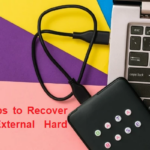eLearning through an accredited virtual high school can suit a variety of teen learners, andin a wide array of situations. It can be a perfect choice for those struggling with the social complexities of brick-and-mortar schooling, those who’d like to recoup missed credits, and those who’d like to explore courses beyond their day school’s regular offerings.
eLearning is also beneficial for students whose parents’ careers have taken them out of state or province and away from the curriculum to which they’re accustomed. This is especially advantageous if the course curriculum they’re familiar with is rigorous and comprehensive. For example, many students in Ontario who relocate out of the province for the remainder of their high school education opt to continue their classes through virtual schooling in Ontario due to the province’s well-respected education system.
eLearning can also help teens develop and strengthen their soft skills. Here’s how.
Communication Skills Are Honed
You might assume that a regular brick-and-mortar school would be the best space for growing and strengthening communication skills. However, due to large class sizes, it’s sometimes difficult for some teens to get their voices heard. Others experience social anxiety over speaking out in a crowd.
Technology now allows teens in virtual schools to learn through various methods, both independently, with teacher direction, and cooperatively. In most cases, students will participate and contribute to threaded discussions and group chats throughout their classes — empowering them to work alongside fellow classmates, to advocate for themselves and others, and to contribute in situations that might otherwise prove too intimidating for them to speak up.
Time Management Skills Are Developed
Most virtual high schools offer an asynchronous approach to learning, where students can log on to coursework whenever it suits them best. The onus is on the learner to advance through their course (or courses) and to complete exams. This is advantageous for many, but taking the time to nurture time management skills is still key.
In some cases, the freedom that asynchronous learning offers can lead students to believe they have all the time in the world to get their work done. On the contrary, while learning is flexible, time management and self-discipline are crucial to keeping on track.
Accredited virtual high schools will have support networks in place to guide learners. Teachers will monitor attendance and reach out if they have concerns about lagging progress. While this may initially contradict the notion of self-discipline, students often sail easily into structuring and managing their day’s learnings, while others need a little help at the very beginning until they get on track.
Organizational Skills Are Strengthened
Time management and organization go hand in hand. eLearning empowers teens to formulate their own structure for organizing their day using technology, like cloud-based calendars and apps for task management. Understanding how to stay organized is a fantastic soft skill that will buoy confidence and career success post-graduation.
In fact, the question ‘How do you keep yourself organized?’ is one of the top 10 most frequently asked questions during an interview. For young graduates, being able to assuredly lean on many years of self-directed education is a massive boon to the application process. It also puts them in good standing for organized learning at a higher education institution.
The Takeaway
eLearning through an accredited virtual high school doesn’t just improve the quality of education for students, but it can also help them improve and finesse essential soft skills, giving them an advantage in work and school later in life.

















